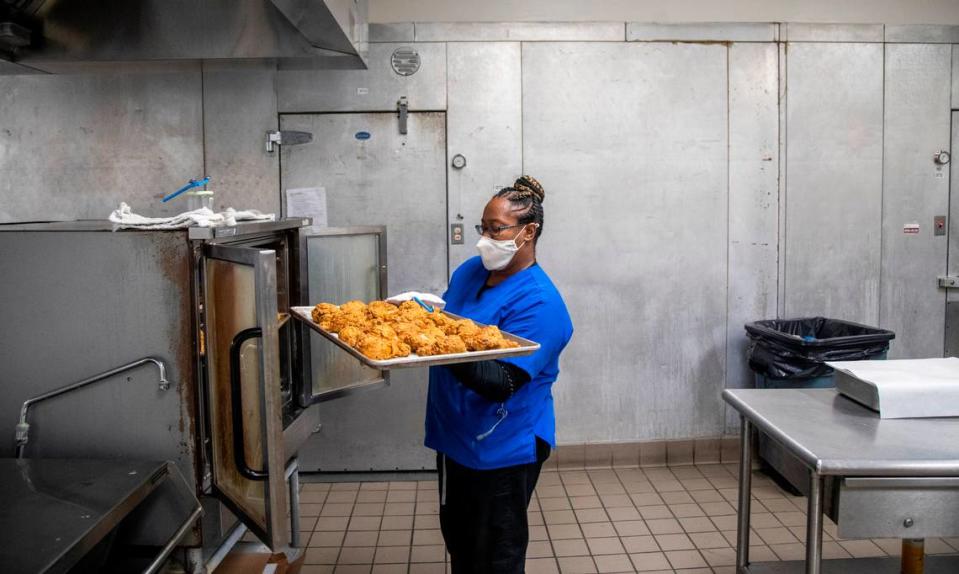Wake will resume charging students for school meals. See how much prices could rise.
Many Wake County students will not only have to start paying for school meals again, but the breakfasts and lunches will likely come with a higher price this fall.
Federal COVID-19 waivers that have allowed U.S. public schools to offer free breakfasts and meals to all students regardless of income will expire in June. With Wake once again having to charge for meals, the school board will vote Tuesday on a staff recommendation to raise breakfast and lunch prices by 25 cents for next school year.
Under the proposal, the cost for a full-price breakfast will rise to $1.50 in elementary schools and $1.75 in middle and high schools. A full-price lunch would rise to $3 in elementary schools and $3.25 in middle and high schools
Child nutrition officials say the price increase will allow them “to operate with a budget that includes sufficient revenue to support operations based on budgetary assumptions,” according to documents prepared for Tuesday’s board meeting.

Federal meal waivers ending
Before the pandemic, only 31% of Wake’s students came from families with low-enough incomes to qualify for a free or reduced price school lunch.
But during the pandemic, the U.S. Department of Agriculture allowed schools to serve free meals to all children during the end of the 2019-20 school year, last school year and this school year. The waivers also included higher reimbursement costs for schools for each meal served.
In February, nearly 2,000 national, state and local organizations from every state signed a letter urging Congress to extend the USDA’s authority to issue nationwide waivers beyond this school year, EdNC reported. Legislation that would extend the waivers is stuck in a U.S. Senate committee.
With the waiver ending, families who want a subsidized meal will once again have to fill out an application showing their income meets federal guidelines.
Wake’s proposed price increase will not affect free or price reduced lunch students, just those who’d pay full price for their school meals.
Higher costs for meal program
Wake, like other school districts nationally, is dealing with major staffing shortages for school cafeteria staff. Wake has a 22% vacancy rate in child nutrition.

Conditions got so bad in November that cafeteria workers in dozens of Wake schools called out sick to protest working conditions and low pay. This led to Wake briefly asking students to bring in their own meals.
Wake is preparing for the state to provide school support staff, like cafeteria workers, with a 2.5% salary increase. The school board’s proposed budget includes a new $16 hour minimum salary for support staff and raises for other employees.
The higher wages also come during a time of higher food costs and shortages of some supplies.
Child nutrition “recommends an incremental multi-year price adjustment strategy to manage cost increases,” according to the presentation.

 Yahoo Movies
Yahoo Movies 